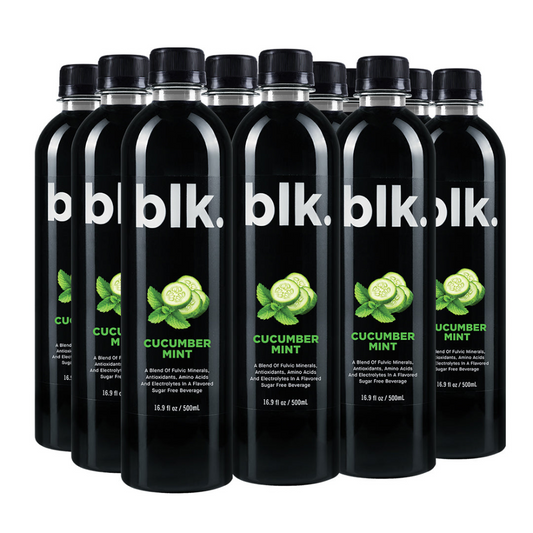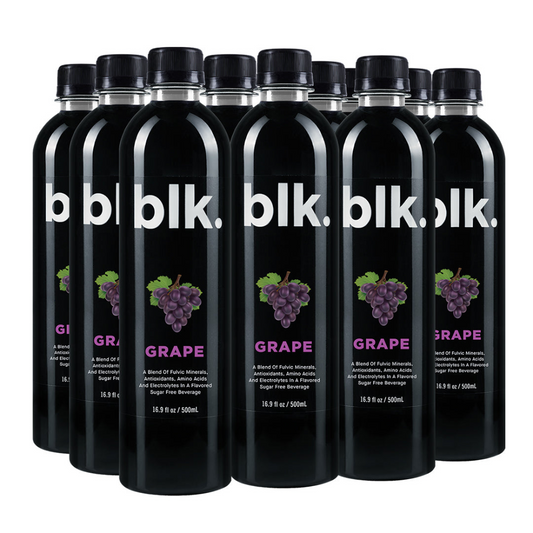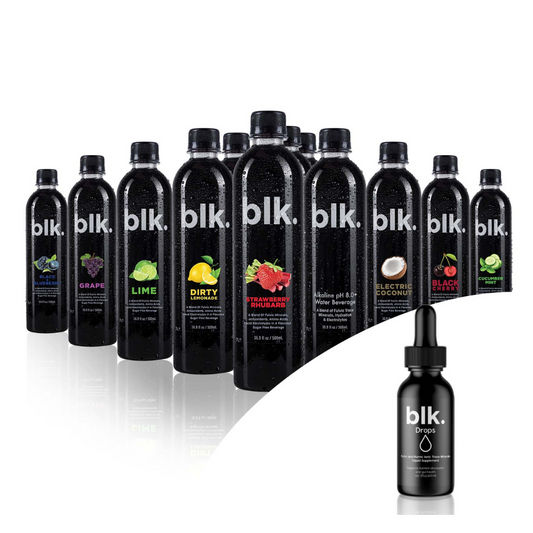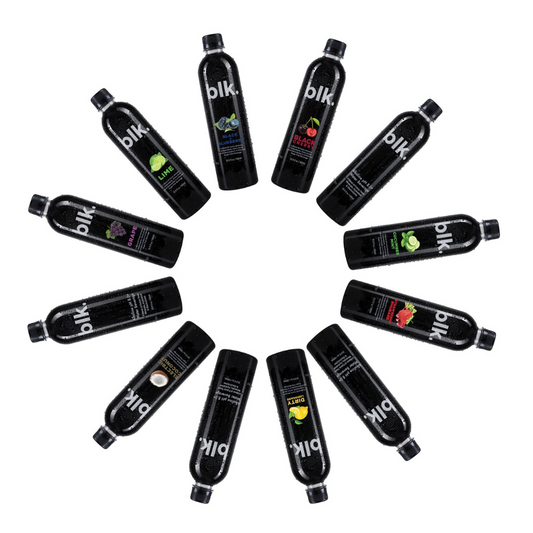
Boost Your Workout Results With Whey Protein Hydrolysate
This Article Will Guide On:
- What whey protein hydrolysate is
- The benefits of whey protein hydrolysate for workout performance
- The usage of whey protein hydrolysate for workout
Cow's milk has two types of protein; whey and casein. Whey protein hydrolysate, or hydrolyzed whey protein or hydrolyzed whey, is made by separating the whey protein from the other nutrients in cow milk and further breaking the whey protein into smaller units called peptides. Hydrolysis is the process that leads to the formation of a whey protein hydrolysate. Whey protein hydrolysate is a subset of whey protein isolate and is a partially digested whey protein isolate.
Whey protein hydrolysate is essential in workout performance due to its unique benefits; it is argued to be better than whey protein isolate because of its featured benefits.
Benefits of Whey Protein Hydrolysate in Workout Performance
Whole whey protein is a commonly used and widely known supplement. Some of its known benefits include;
- Easily digestible
- Bioavailability properties
- Faster absorption
- Hypoallergenic properties
Whey Protein Hydrolysate and Increased Muscle Growth and Recovery
Whey protein is undoubtedly the standard protein play for sports nutrition because of its high amounts of branched-chain amino acids and rich essential amino acid profile. Whey protein hydrolysate as a form of whey protein takes up these features in addition to other unique qualities to improve workout performance. Whey protein hydrolysate enhances protein absorption; thus, muscle recovery begins as soon as possible.
Protein is essential in muscle protein synthesis, the process of repairing damaged muscle tissues. During an intense workout, muscles repetitively contract, which can result in microscopic muscle damage. Amino acids are required to repair and rebuild damaged muscle tissues. With greater bioavailability and faster absorption rates, whey protein hydrolysate ensures a fast and quick muscle protein synthesis. This claim is supported by studies that have revealed that whey protein hydrolysate supplementation increases muscle recovery from exercise-induced muscle damage in females.
Whey protein hydrolysate may also help in muscle growth through its ability to stimulate the insulin effect. Insulin is known to stimulate glycogen resynthesis and enhance muscle growth. Muscle glycogen is the primary source of energy for the body during training.
Whey Protein Hydrolysate and Improved Endurance and Strength
Endurance and strength are the cornerstones of workout performance. However, it is prevalent for both to reduce during workouts. A moderate to intense workout causes an increase in oxidative damage and the subsequent decline in the antioxidant Glutathione (GSH) levels. This reaction causes fatigue and reduced performance. To overcome fatigue during exercise, one needs to enhance the concentrations of the antioxidant glutathione, raising the body's oxidative capacity and thus improving the body's endurance for performance.
Cysteine is the primary factor behind the control of glutathione. Cysteine is an amino acid used throughout the body. Most supplements have cysteine as an ingredient in the form of N-acetyl-L-cysteine (NAC). The body converts it to cysteine and glutathione when taken in whey protein form.
Whey protein is known to exhibit high levels of cysteine, which enables it to increase the antioxidant glutathione levels by affecting the production of pro-inflammatory mediators, thus, causing an anti-inflammatory effect in the body.
Whey protein hydrolysate as a form of whey protein has cysteine, increasing the body's natural production of glutathione. An increase in glutathione raises the body's oxidative capacity, which leads to the improvement of endurance and strength.
Whey Protein Hydrolysates and Reduced Muscle Damage and Soreness
Intense physical activity causes consistent muscle contractions, leading to the breakdown of muscle fibers. Muscle damage causes muscle soreness, reducing your ability to work out in the subsequent training sessions.
Whey protein hydrolysate has been shown to reduce muscle damage and subsequent muscle soreness, which helps in reducing the rest period between workout sessions. It also can increase the training load in your next workout session.
Research supports this argument where it has been found that whey protein hydrolysate supplementation reduces muscle damage markers compared to whey protein.
Whey Protein Hydrolysate and Increased Satiety and Weight Management
A study conducted on middle-aged rats revealed that whey protein hydrolysate can potentially improve gut microbiota composition and preserve muscle. The study concluded that whey protein hydrolysate has good prospects for weight management in middle age.
Another study aimed at assessing the effects of whey protein hydrolysate combined with an energy-restricted diet on weight management and muscle preservation in older women concluded that Whey protein hydrolysate was more effective, preferably due to its increased energy metabolism abilities.
How to Use Whey Protein Hydrolysate for Workout Performance
So far, we have focused on the various benefits of whey protein hydrolysate. But, it’s also important to know how to use whey protein hydrolysate for optimal results in a workout. This is because it is not guaranteed that using whey protein hydrolysate in any manner will lead to a successful workout. Wrong usage, overdosage, under dosage, or wrong timing may not likely produce this supplement's desired and expected results.
Dosage and Timing
Dosage
The general consensus for normal people is that one should take 20-30 grams of protein daily. For workout performance results, the dosage of a whey protein hydrolysate is a bit challenging; if you take too little, you will be less likely to maximize your results for workout performance, and if you take too much, you will most likely be wasting protein for no good reason. In addition, excess protein may expose you to unnecessary side effects and harm as well.
For athletes, studies indicate that the sweet spot is 0.54-0.82g/lb/day for reliable results. That aside, it is essential to use whey protein hydrolysate following your body composition; every individual has a different body composition. It will also help if you assess the proper dosage of whey protein hydrolysate based on weight. Getting this right will enable you to get the most results from whey protein hydrolysate for workout performance.
Most brands offer guidelines on the dosage and timing of whey protein hydrolysate, and these suggestions are primarily subjective and based on personal or institutional opinions.
Timing
Whey protein hydrolysate may be taken at any time of the day. However, most people prefer to take whey protein hydrolysate pre or post-workout for optimal results. Studies suggest taking whey protein hydrolysate should be consumed after a workout to obtain maximum results. The rationale is that the body needs proteins most after an intense workout to facilitate muscle repair of the damaged muscle tissues.
Since whey protein hydrolysate has a faster absorption rate, experts recommend that you take whey protein hydrolysate together with carbohydrates. However, hydrolysate has been proven to stimulate a more significant insulin response than any other form of whey protein. It is also recommended to take some room-temperature water to enhance the body's hydration post-workout.
Best Ways to Take Whey Protein Hydrolysate
Whey protein hydrolysate is in powder form; this makes it perfect for preparing various recipes. Mix whey protein hydrolysate with water or milk to make a perfect shake. A shake is easier to consume and will also help supply your body with some water required for rehydration after a training session.
You may also consume whey protein hydrolysate as a smoothie. You only need the right amount of whey protein hydrolysate and ingredients that blend well with whey protein hydrolysate for a perfect recipe for a smoothie.
Combining Whey Protein hydrolysate for Maximum Workout Results
Suppose you already get adequate protein from whey protein hydrolysate or some whole foods rich in protein; you do not necessarily need to combine whey protein hydrolysate with other protein supplements. Keep in mind that this does not diminish the fact that you may combine whey protein hydrolysate with other protein supplements.
Combining dietary supplements to obtain maximum results is essential, but one must be cautious. It is best to consult with a qualified and licensed healthcare professional before combining any dietary supplements. Below are some supplements that may be combined with whey protein hydrolysate without harm.
Whey Protein Hydrolysate and Creatine
Creatine is an amino acid primarily located in the brain and the muscles. Most people obtain creatine from natural foods such as red meat and seafood. However, the creatine levels in natural food substances are lower than in synthetically made creatine supplements. Since creatine is an amino acid, there is no harm in combining it with whey protein hydrolysate.
Add some carbohydrates to the mixture of whey protein hydrolysate and creatine to obtain better results. It would be best to get the amounts/ dosage of both supplements right as you mix them for use.
Whey Protein Hydrolysate and Branched-Chain Amino Acids
Most experts do not recommend the combination of whey protein hydrolysate with BCCAs. The rationale is that BCAAs contain as much protein as whey protein hydrolysate. To underscore this point, you must assess your optimal protein intake to determine whether it will be helpful or wastage to combine whey protein hydrolysate and BCAAs. If you get enough protein from your whey protein hydrolysate, you may not need to add extra protein from BCAAs.
Conclusion
Whey protein hydrolysate is the preferable form of whey protein for getting the most absorbed and used proteins in the muscles.
Whey protein hydrolysate is the fastest absorbed form of whey protein and preferably the best form for those looking to get the most performance out of workouts. The peptide chains in whey protein hydrolysate are pre-digested into chains, absorbing it faster. The effect is that the body immediately uses whey protein hydrolysate to repair and rebuild damaged muscle.
Whey protein hydrolysate also has high leucine content, enabling it to trigger muscle protein synthesis that repairs damaged muscle tissues, thus reducing muscle soreness and the period until the next exercise session.
Frequently Asked Questions
-
What is the best time to take whey protein hydrolysate?
-
Is Whey Protein Hydrolysate Safe?
-
What Does Whey Protein Hydrolysate Do in Workout?
-
Which is Better, Between Whey Protein Hydrolysate or Whey Protein Isolate?
-
How Much Whey Protein Hydrolysate Should I Take in a Day?




